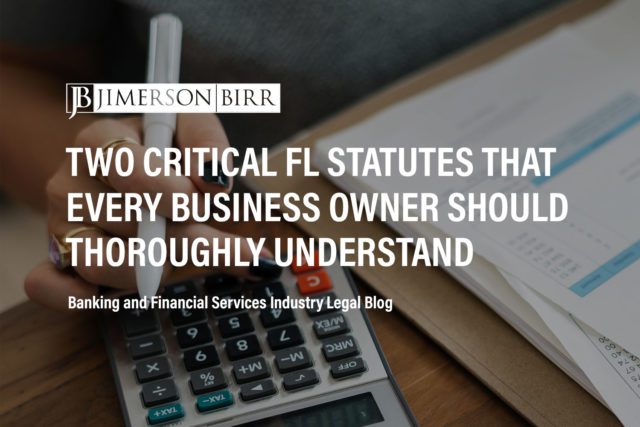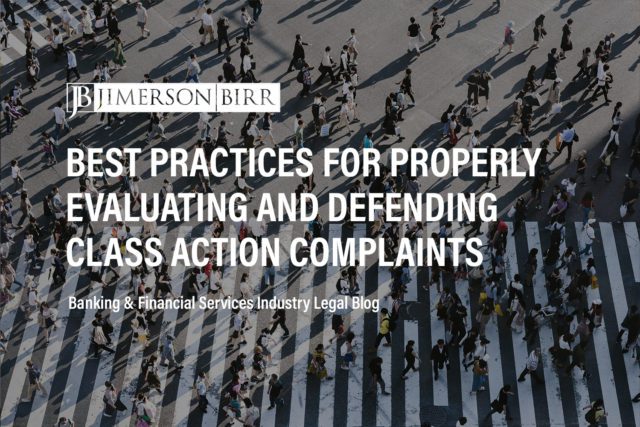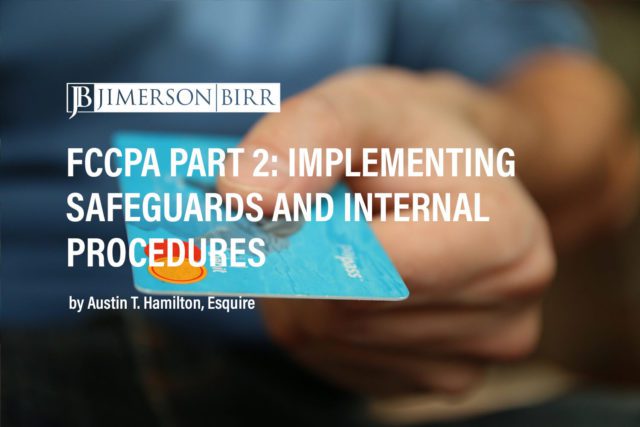What does FCCPA class action defense litigation entail?
FCCPA class action defense focuses on protecting creditors from potential class action lawsuits initiated by multiple plaintiffs who allege a violation of their rights under the FCCPA. In Florida, the FCCPA is governed by the Florida Statutes and is designed to protect consumers from abusive and deceptive debt collection practices.
For instance, consider a case where a debt collector sends multiple demand letters to several consumers, allegedly violating the FCCPA. Affected consumers may file a class action lawsuit against the debt collector. An FCCPA class action defense attorney would then represent the debt collector and strategize to defend against the allegations.
Need help regarding FCCPA defense litigation? Schedule your consultation today with a top FCCPA defense litigation attorney.
Which laws and regulations apply to FCCPA class action defense litigation in Florida?
At the state level, the primary statute is Florida Statute § 559.72, which outlines the prohibited practices by debt collectors. Additionally, Florida Statute § 559.77 governs civil liability for violations of the FCCPA.
At the federal level, the Fair Debt Collection Practices Act (FDCPA) is a crucial statute to consider as it sets the standard for debt collection practices nationwide. Moreover, the Federal Trade Commission (FTC) and the Consumer Financial Protection Bureau (CFPB) enforce federal consumer protection laws, including the FDCPA, and issue regulations that may impact FCCPA class action defense litigation.
What are common issues regarding the FCCPA that lead to class action litigation?
The following issues commonly lead to FCCPA litigation:
- Harassment and abuse: Debt collectors who use abusive, harassing, or oppressive tactics in their collection efforts.
- False statements: Making false, deceptive, or misleading representations concerning debt collection.
- Unfair practices: Employing unjust or unconscionable means to collect a debt, such as collecting unauthorized fees or charges.
- Contacting third parties: Communicating with third parties, such as the debtor’s family, friends, or employer, about the debt without the debtor’s consent.
- Contacting debtor after notice of representation: Continuing to contact the debtor after receiving written notice that an attorney represents the debtor.
When a set of facts is appropriate for FCCPA defense litigation, there are many paths a claimant may take. We are value-based attorneys at Jimerson Birr, which means we look at each action with our clients from the point of view of costs and benefits while reducing liability. Then, based on our client’s objectives, we chart a path to seek appropriate remedies.
To determine whether your unique situation may necessitate litigation, please contact our office to set up your initial consultation.
What FCCPA class action claims do plaintiffs generally bring to court, and what are common legal defenses to those claims?
In Florida, plaintiffs must satisfy the procedural and evidentiary requirements to file an FCCPA class action lawsuit. In addition, to proceed, the class must meet the numerosity, commonality, typicality, and adequacy of representation requirements outlined in Florida Rule of Civil Procedure 1.220(a).
Common claims that FCCPA class action plaintiffs file in Florida courts include:
- Violation of FCCPA § 559.72(7) for engaging in harassing, abusive, or oppressive collection tactics.
- Violation of FCCPA § 559.72(9) for making false, deceptive, or misleading statements concerning debt collection.
- Violation of FCCPA § 559.72(10) for employing unfair or unconscionable debt collection practices.
- Violation of FCCPA § 559.72(18) for unauthorized communication with third parties about the debtor’s debt.
- Violation of FCCPA § 559.72(19) for contacting the debtor after receiving notice of legal representation.
Common legal defenses raised against FCCPA class action complaints include:
- Bona fide error defense: The defendant can argue that the violation resulted from a bona fide error, notwithstanding the maintenance of procedures reasonably adapted to avoid such errors, as provided by FCCPA § 559.77(3).
- Statute of limitations: The defendant can assert that the plaintiff’s claim is time-barred if they filed after the one-year statute of limitations under FCCPA § 559.77(5).
- Lack of standing: The defendant can challenge the plaintiff’s standing to sue by demonstrating that the plaintiff did not suffer a concrete injury due to the alleged violation.
- Failure to state a claim: The defendant can argue that the plaintiff’s complaint does not state a valid claim under the FCCPA or that the defendant’s conduct falls within the permissible bounds of the statute.
- Individual defenses: The defendant can raise defenses specific to individual class members, such as disputing the validity or amount of the debt or asserting that the debtor has already paid the debt.
Please contact our office to set up your initial consultation to see what actions or defenses may be available for your unique situation.
What are effective measures to minimize the risk of class action litigation?
Implementation of the following measures may help mitigate the risk of FCCPA class action litigation:
- Establish compliance policies: Develop and implement policies that adhere to the FCCPA and other applicable laws and regulations, ensuring all employees are well-versed in these policies.
- Regular training: Provide ongoing training to employees involved in debt collection to ensure they are aware of the latest changes in the law and best practices for compliance.
- Implement a strong complaint resolution process: Create a robust complaint resolution process to address consumer grievances promptly and effectively, reducing the risk of litigation.
- Maintain clear and accurate records: Keep detailed and accurate records of all communication with debtors, ensuring compliance with FCCPA requirements and providing a strong defense in the event of a lawsuit.
- Conduct internal audits: Periodically review and audit debt collection practices to identify and remedy any potential areas of non-compliance.
Frequently Asked Questions
- What damages can plaintiffs recover in an FCCPA class action lawsuit?
In an FCCPA class action lawsuit, plaintiffs may recover actual damages, statutory damages of up to $1,000 per violation, attorney’s fees, and court costs, as provided under FCCPA § 559.77(2).
- Can a debtor file a lawsuit against a debt collector even if the debt is valid?
Yes, a debtor can still file a lawsuit against a debt collector if the debt collector violates the FCCPA, even if the debt itself is valid. This option is available because the FCCPA aims to protect consumers from unfair debt collection practices, regardless of the legitimacy of the debt.
- How does the FCCPA interact with the federal Fair Debt Collection Practices Act (FDCPA)?
The FCCPA and the FDCPA are separate statutes that regulate debt collection practices. The FCCPA is a Florida state law, while the FDCPA is a federal law. Both statutes provide consumer protection, but the FCCPA contains some Florida-specific provisions. Generally, a debtor can pursue remedies under the FCCPA and the FDCPA, and violating one law may also constitute a violation of the other.
Have more questions about an FCCPA defense-related situation?
Crucially, this overview of FCCPA class action defense does not begin to cover all the laws implicated by this issue or the factors that may compel the application of such laws. Every case is unique, and the laws can produce different outcomes depending on the individual circumstances.
Jimerson Birr attorneys guide our clients to help make informed decisions while ensuring their rights are respected and protected. Our lawyers are highly trained and experienced in the nuances of the law, so they can accurately interpret statutes and case law and holistically prepare individuals or companies for their legal endeavors. Through this intense personal investment and advocacy, our lawyers will help resolve the issue’s complicated legal problems efficiently and effectively.
Having a Jimerson Birr attorney on your side means securing a team of seasoned, multi-dimensional, cross-functional legal professionals. Whether it is a transaction, an operational issue, a regulatory challenge, or a contested legal predicament that may require court intervention, we remain tireless advocates at every step. Being a value-added law firm means putting the client at the forefront of everything we do. We use our experience to help our clients navigate even the most complex problems and come out the other side triumphant.
If you want to understand your case, the merits of your claim or defense, potential monetary awards, or the amount of exposure you face, you should speak with a qualified Jimerson Birr lawyer. Our experienced team of attorneys is here to help. Call Jimerson Birr at (904) 389-0050 or use the contact form to schedule a consultation.

We live by our 7 Superior Service Commitments
- Conferring Client-Defined Value
- Efficient and Cost-Effective
- Accessibility
- Delivering an Experience While Delivering Results
- Meaningful and Enduring Partnership
- Exceptional Communication Based Upon Listening
- Accountability to Goals











